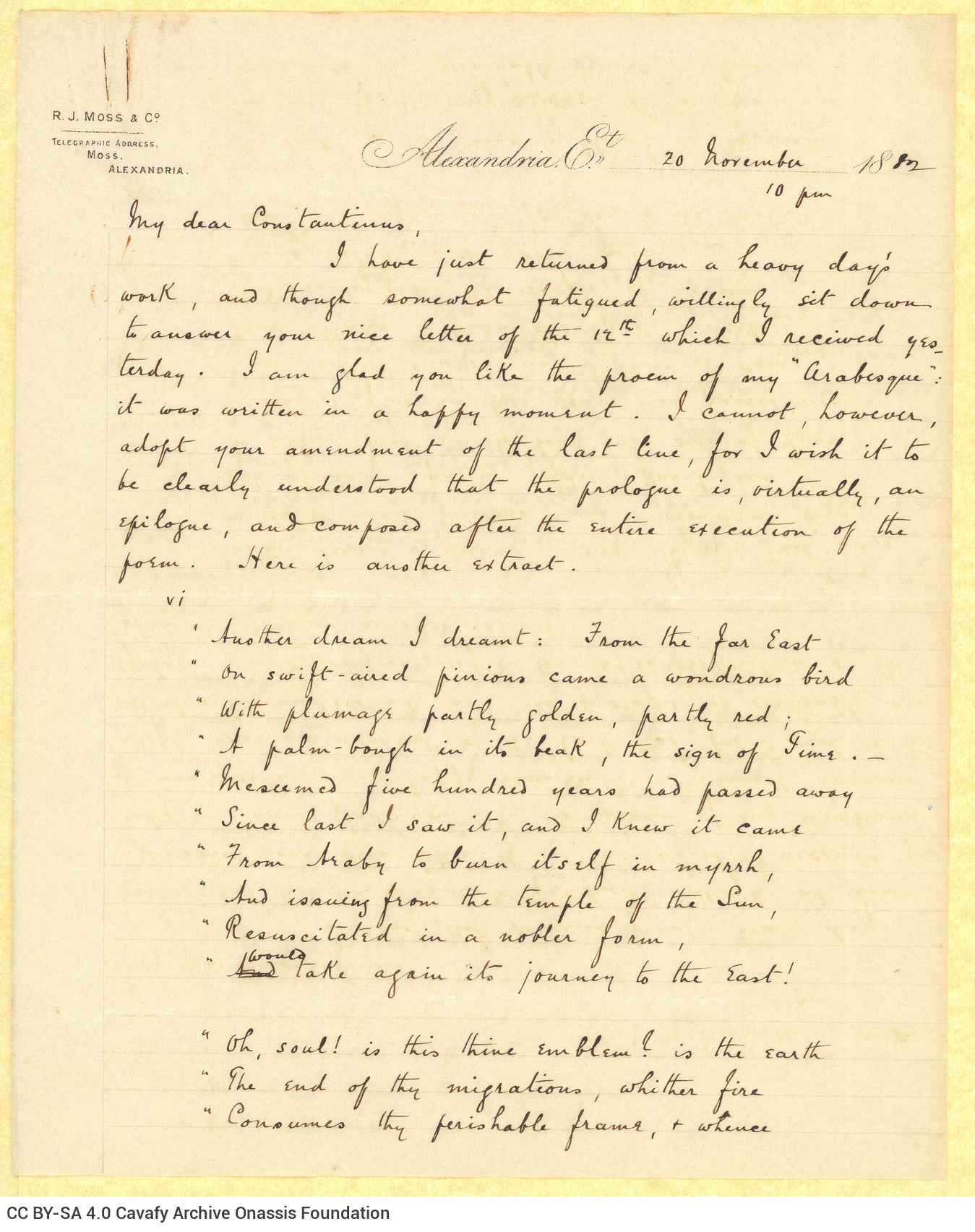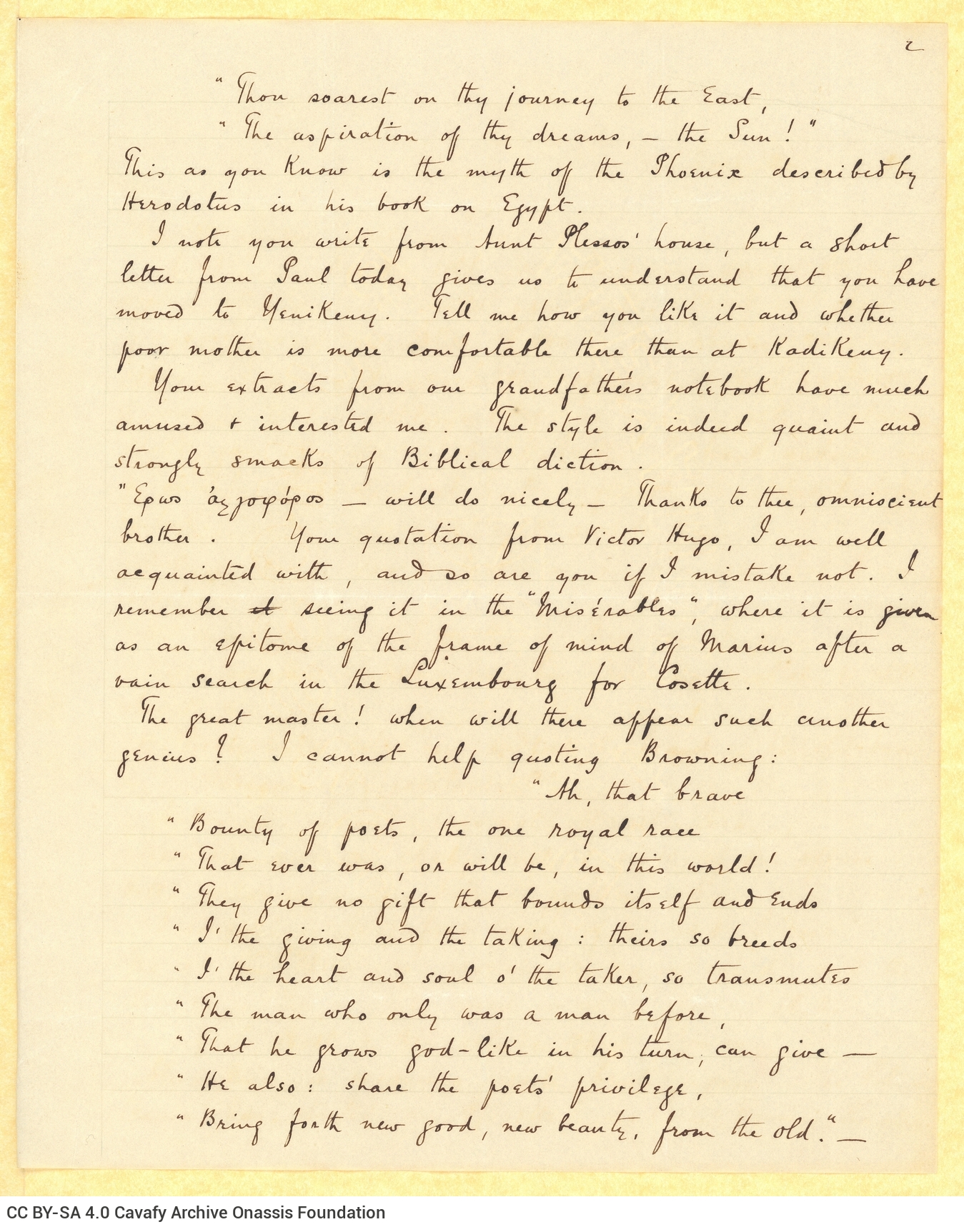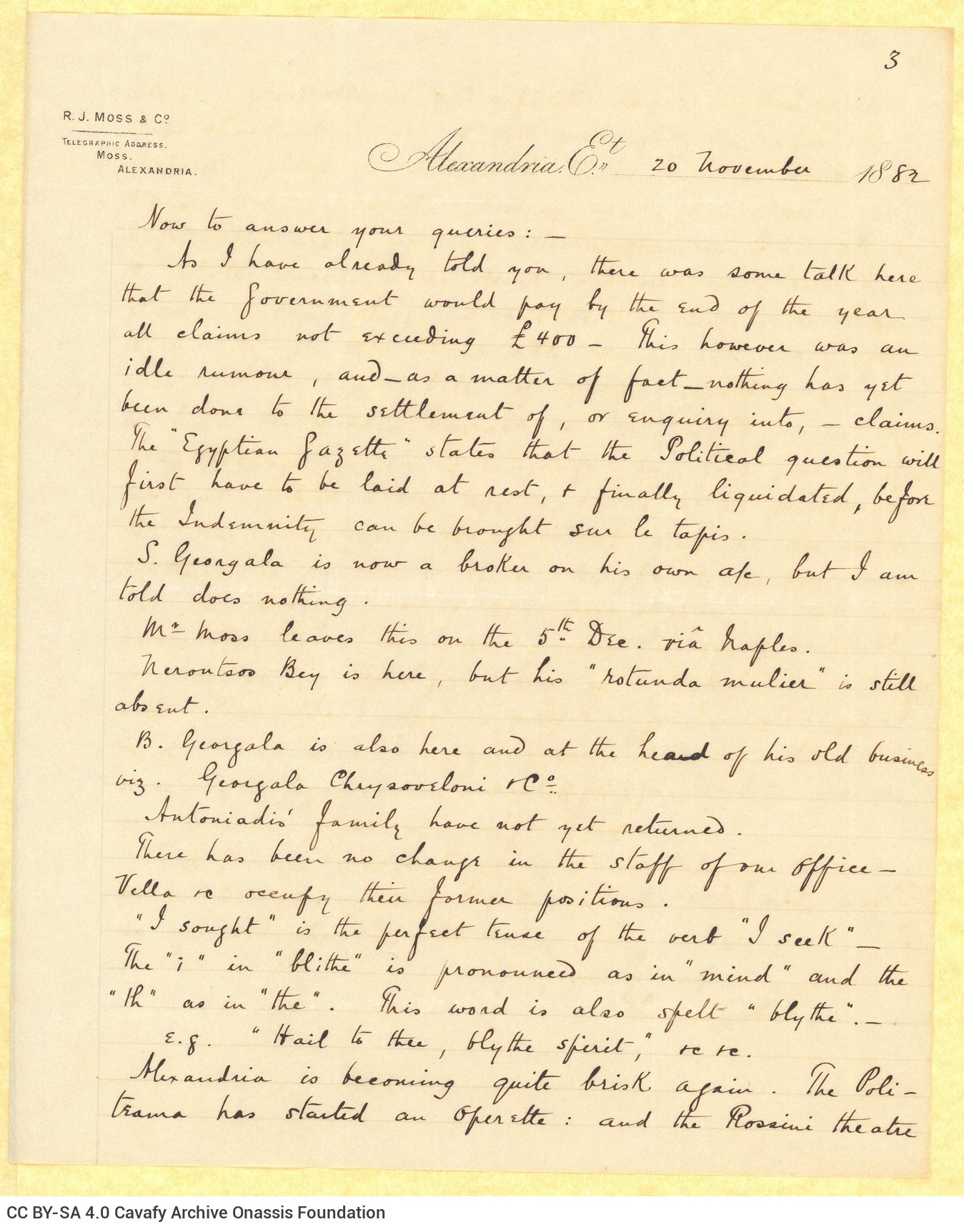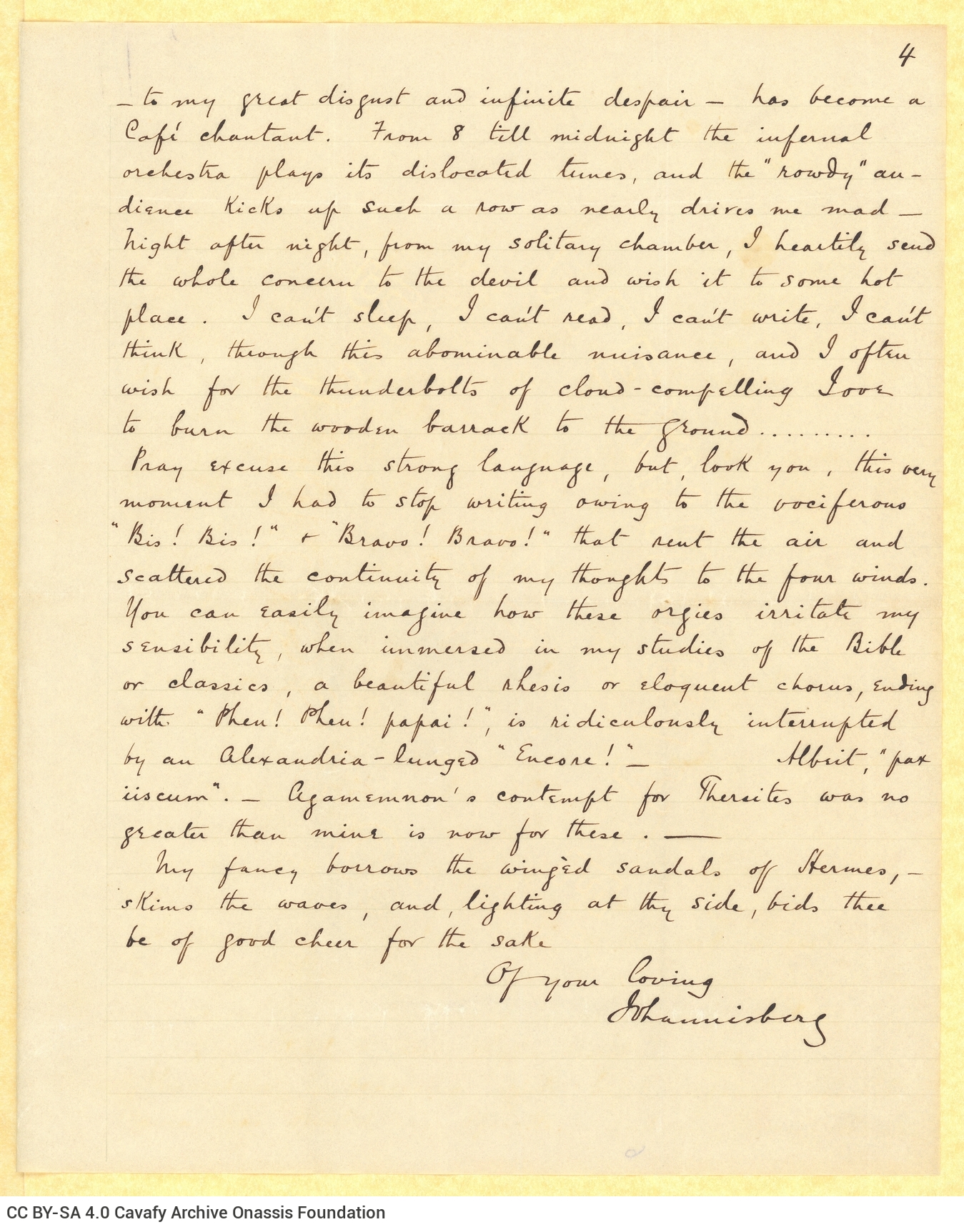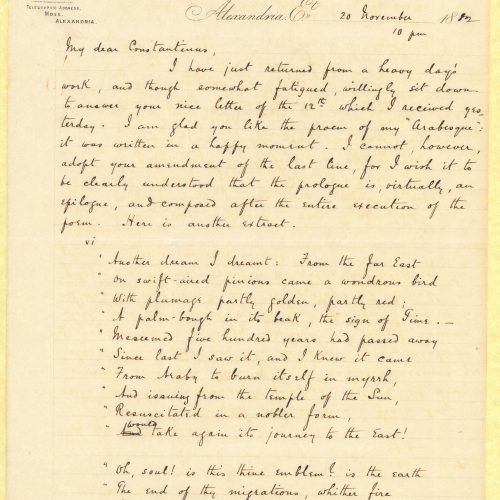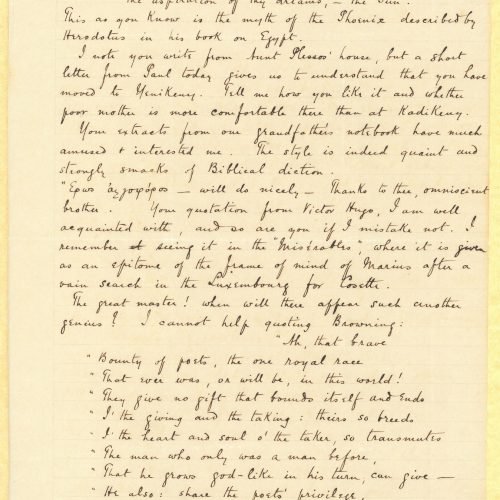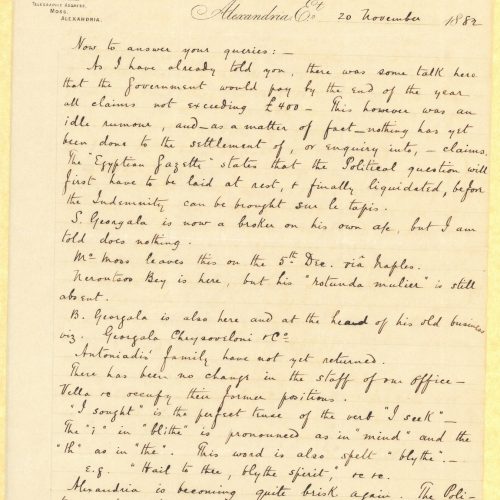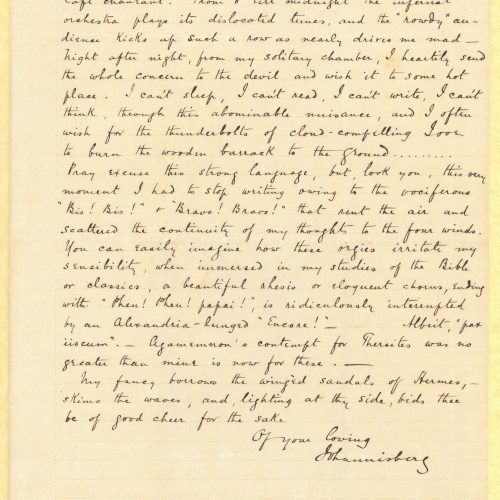υπογράμμιση
υπογράμμιση
πράσινη γραμματοσειρά
κίτρινη γραμματοσειρά
κόκκινη γραμματοσειρά
DIGITAL OBJECT DESCRIPTION
IDENTITY AREA
44 x 27.5 cm
CONTEXT AREA
CONTENT AND STRUCTURE AREA
Handwritten letter by John Cavafy to C. P. Cavafy on the first and third pages of two double sheet letterheads of R. J. Moss & Co., Alexandria. Pages 2-4 are numbered at top right. He comments on his poem “Arabesque” and quotes from it. Quote from a poem by Robert Browning. Update on current affairs and on the social life of Alexandria.
CONDITIONS OF ACCESS AND USE AREA
English
Writing in ink. Watermark: R. J. Moss & Co Alexandria. Physical item wear: oxidations.
NOTES AREA
The transcription and editing of the letters of John Constantine Cavafy addressed to C. P. Cavafy was first carried out by Katerina Ghika; said transcriptions were subsequently uploaded to the official website of the Cavafy Archive.
ACCESS POINTS
Cavafy, John Constantine. “Letter by John Cavafy to C. P. Cavafy”. Letter, 20.11.1882. GR-OF CA CA-SF02-S01-SS02-F20-SF001-0011 (386), Onassis Foundation C. P. Cavafy Fonds. From The Digital Collection of the Cavafy Archive, edited by Onassis Foundation, Athens, last modified 01.10.2025. https://doi.org/10.26256/CA-SF02-S01-SS02-F20-SF001-0011.
